Assembling this 24" kids' bike
Did you buy a kids' hybrid bike online?
This video will show you how to put it together at home. Let's go!
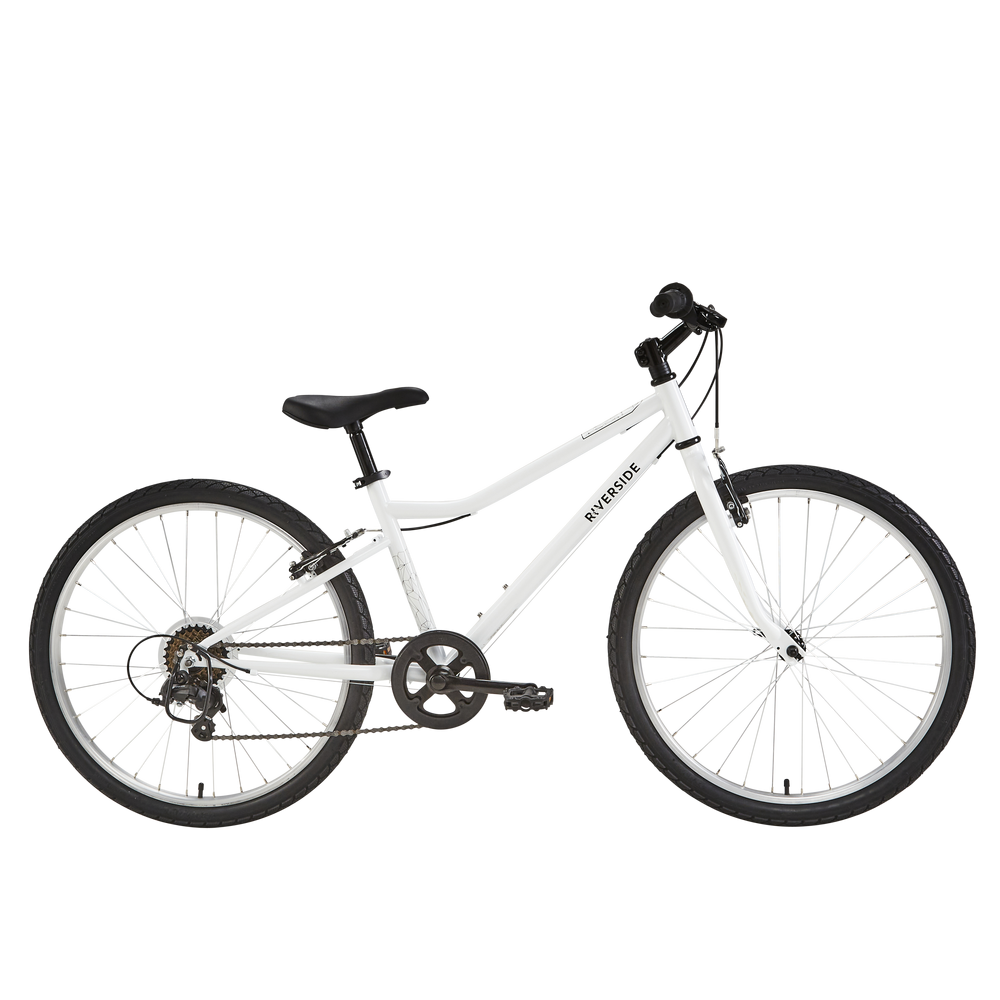
REF: 8576534
We designed this hybrid bike for kids ages 9 to 12 years (135 to 150 cm tall) who like to ride in urban parks and on maintained paths.
So you received your bike, and now it's time to put it together. No worries, just follow our simple guide! These tutorials draw on the expertise of our product manager and children's bike engineer.
Did you buy a kids' hybrid bike online?
This video will show you how to put it together at home. Let's go!
24" Riverside 100 Hybrid Bike
There are two barrel adjusters on each brake, situated on the brake levers. They are used to adjust the tension of the brake cable. Make sure you get the setting right when using the barrel adjuster. (The more the barrel is tightened, the tighter the cable).
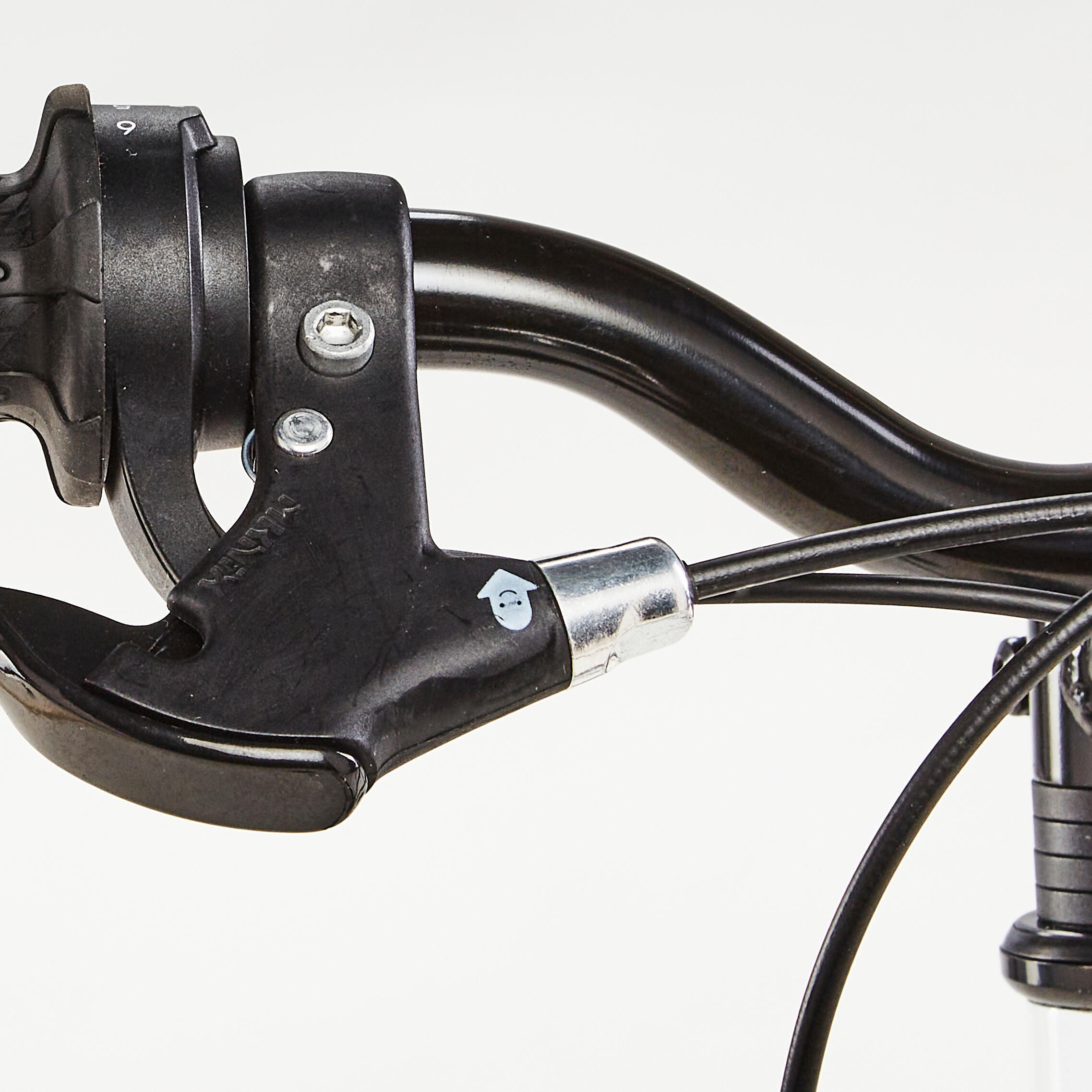
The brake cable noodle is a stainless steel part that is used to guide the brake cable into the V-brake caliper. The noodle is set at a specific angle to ensure the cable can slip into position and offer effective braking. It can be replaced if damaged.
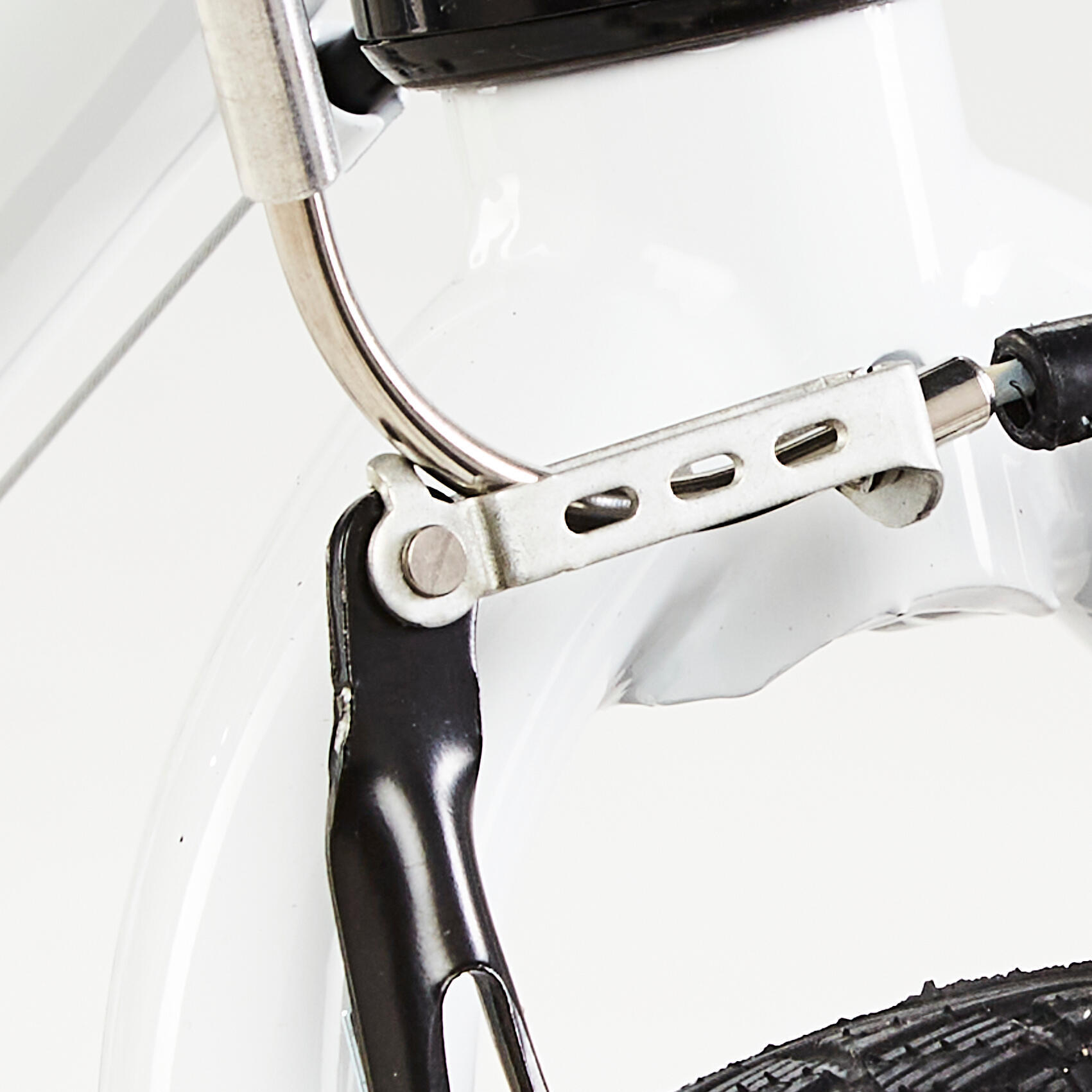
A V-brake is comprised of two callipers (one left calliper and one right). They are linked together in the middle, at the brake cable sleeve.
Pull the brake cable housing out to release the callipers. This will allow you to remove the wheel easily.
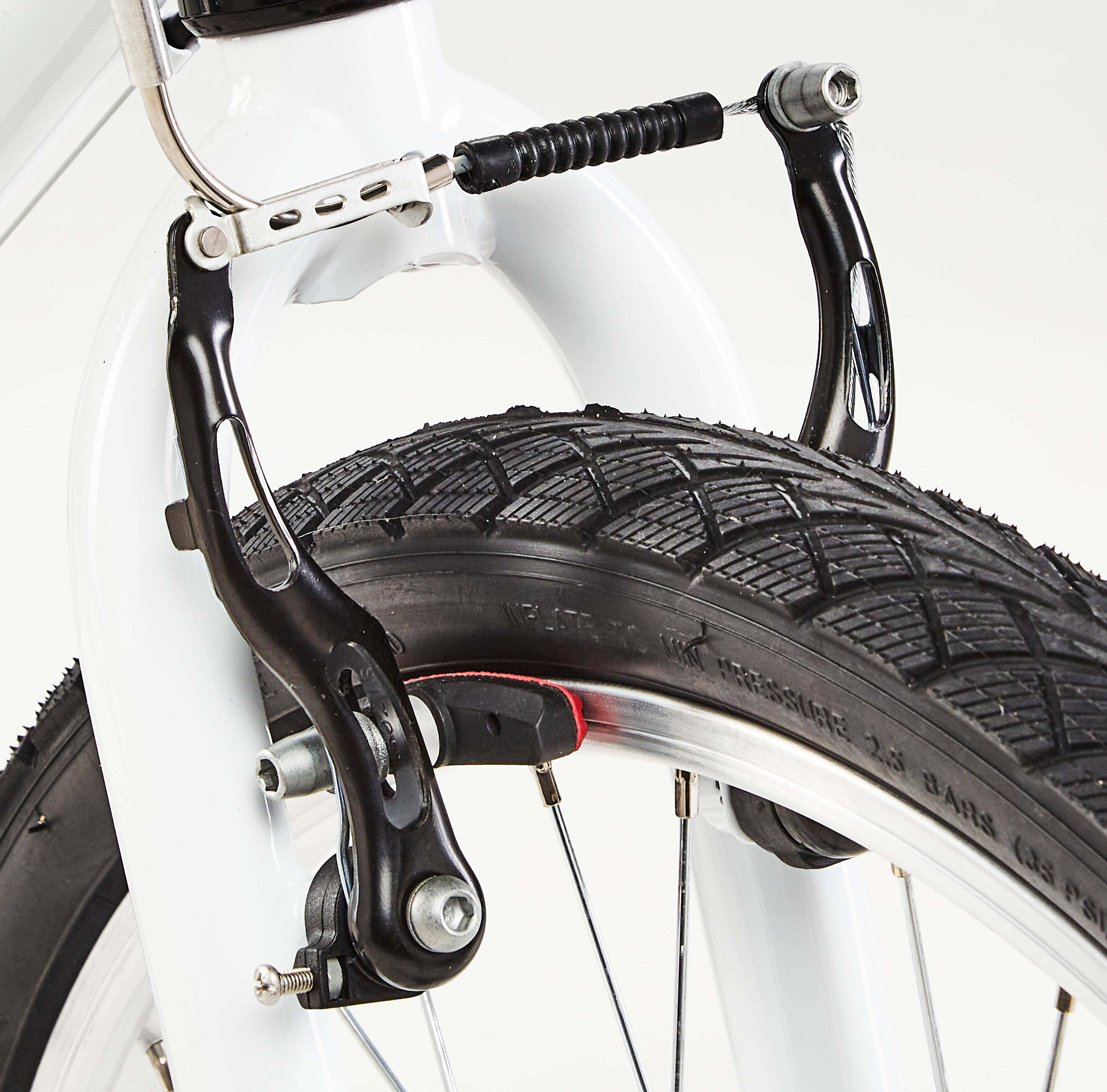
The two bolt screws are used to fasten the stem onto the bike's steering tube.
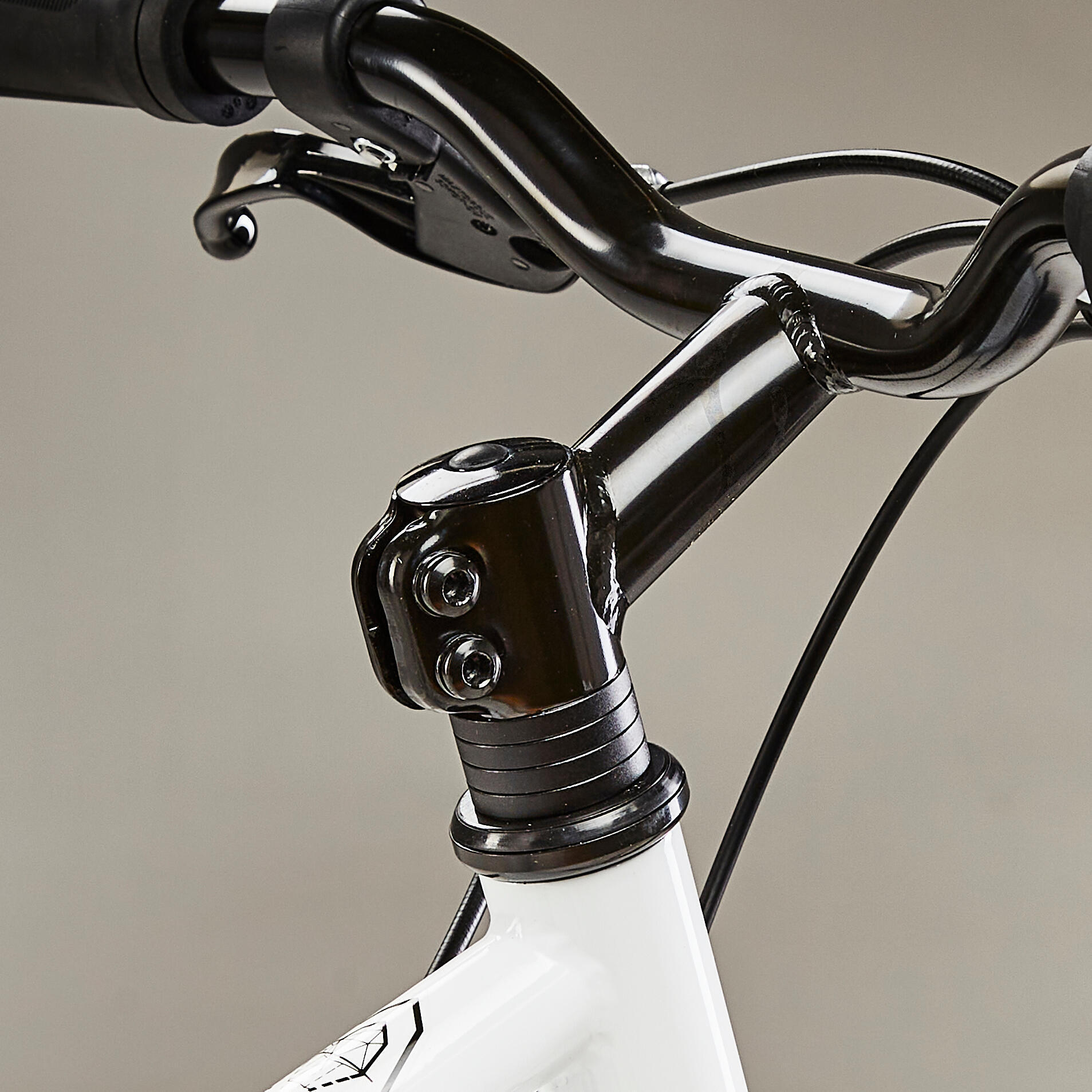
It's important to adjust the height of the seat post and handlebar to fit the child. The minimum insertion point marker on the seat post and handlebar should never be visible for safety reasons (make sure that you insert the seat post past this minimum insertion point).
To determine the correct saddle height, sit your child on the bike with one heel resting on the pedal with the pedal at its lowest position. The saddle height is correct when the child's leg is extended while in this position. Check that the child can touch the ground with their toes while seated.

You can test the brakes on your child's hybrid bike by taking it by the handlebars and walking with it, pulling the right lever to test the rear brake and the left to test the front. The wheels should stop moving when the respective lever is pulled. The brake pads should not rub against the sides of the rim when the brakes are not engaged.
Here's what to do if you notice that the braking isn't smooth or the wheels rub against the brakes: There is a barrel adjuster in front of the brake lever. Turn the barrel in a clockwise direction to tighten the brake for sharper braking. Turn the barrel in an anti-clockwise direction to loosen the brake for less sharp braking and to move the brake pads away from the rim.
It's important to check your brakes regularly.
The recommended pressure is always indicated on the tyre sidewall. We recommend inflating your tyres to the pressure indicated on each tyre. This may vary from tyre to tyre.
Check that the bike's tyres have enough air in them by simply placing your child in the saddle while the bike is stopped. If the tyre pressure is correct the tyre should go down ever so slightly with your child's weight.

Looking to add mudguards to this 24" hybrid bike.
These mudguards are compatible with this child's hybrid bike.
Any questions? Please contact a Decathlon workshop near you.
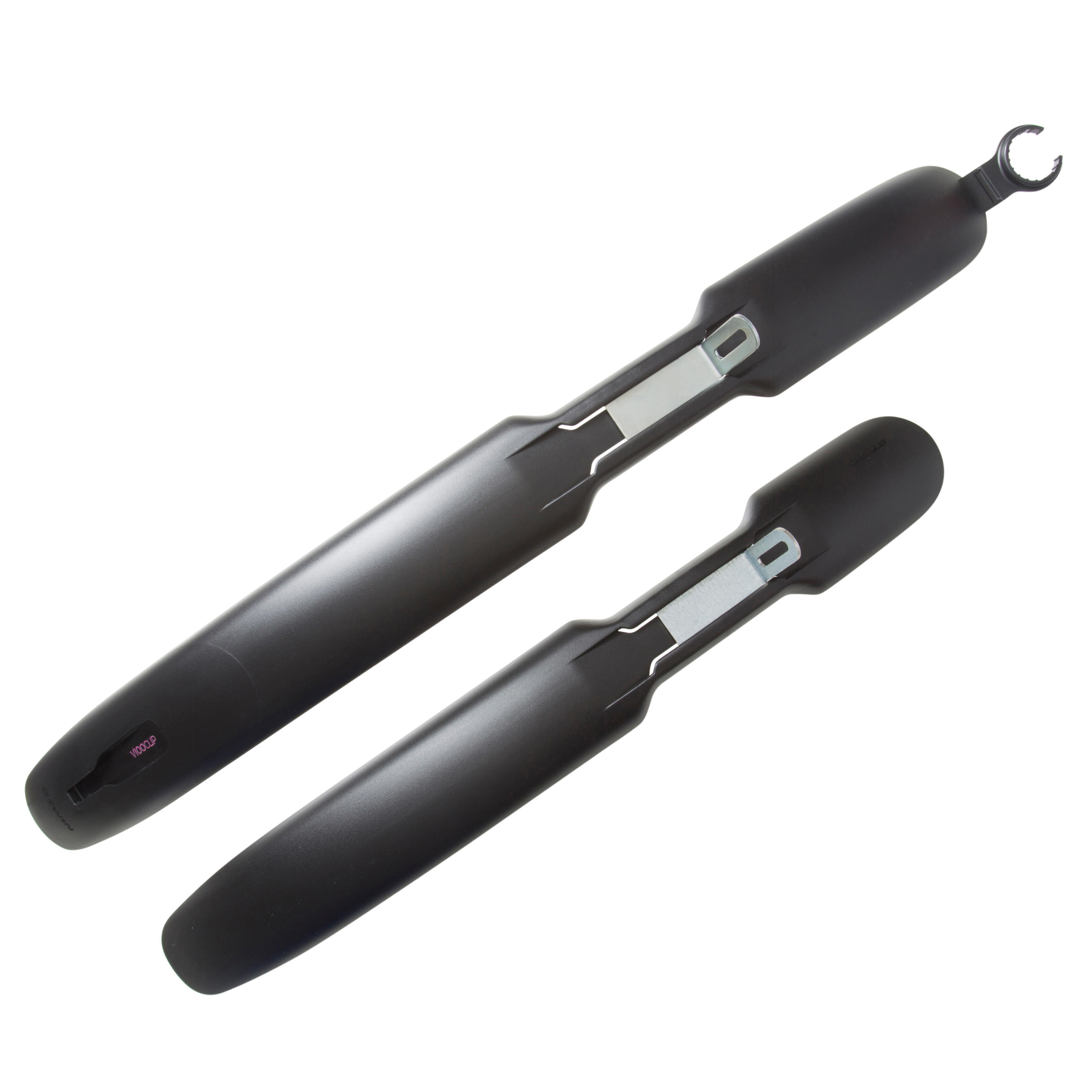
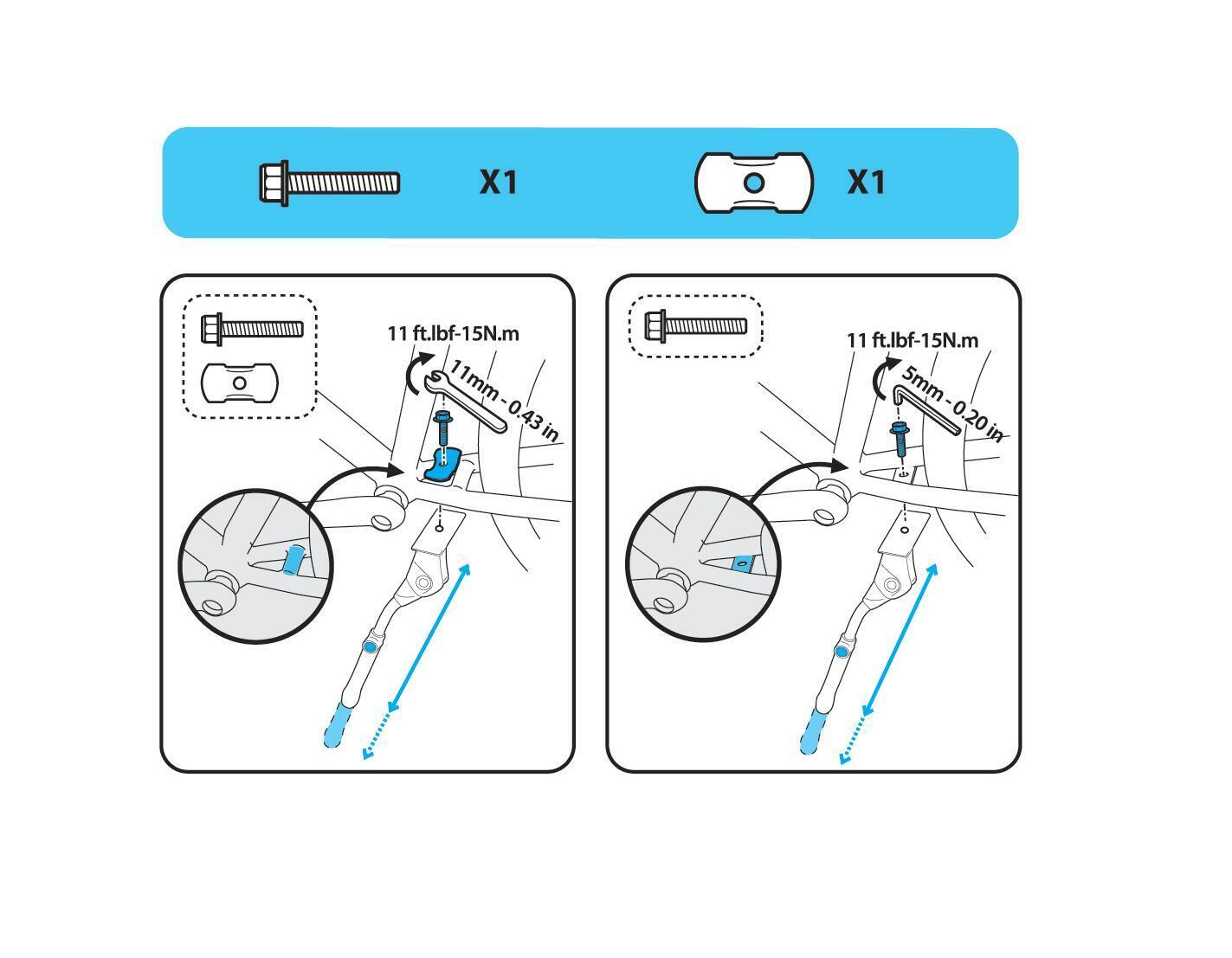
Need a basket that's suited for a 24" hybrid bike? With this basket your child can easily carry small items with them, like their snack, jacket, phone, etc.

We designed this bottle cage with a side opening to make it easier for children to remove a bottle from it as they ride. It can be mounted onto the bike frame and holds a 380 ml bottle.

380 ml bottle, so your child won't forget to stay hydrated while riding their bike!
Available in 3 colours: red, black, or blue.
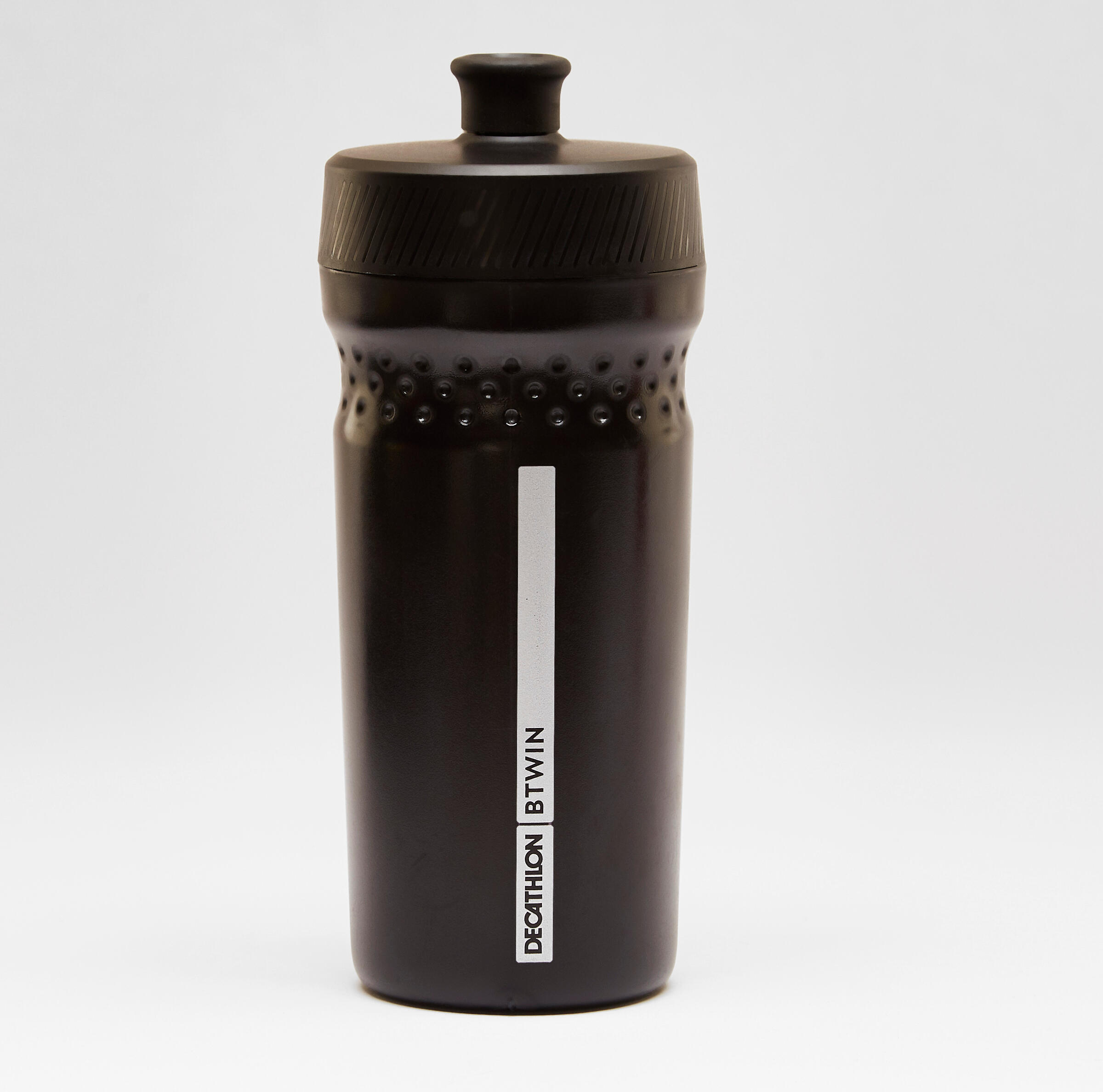
You can use an "all-in-one" type product (available at Decathlon stores) to unjam, clean, lubricate and protect your child's bike. It's a very handy product!
To lubricate the chain on your child's hybrid bike, turn the pedal and "spray" onto the full length of the chain as it passes.
Then leave it to dry for a few minutes. If the chain is very dirty, clean it with a brush or a cloth and spray it again with "all-in-one" product.
Our advice: Avoid any contact with the brake pads and the braking area on the wheel rims.
Protect your bike: Apply all-in-one regularly to prevent rust from appearing.
Lubricating-the-chain-24"-mountain-bike
If you notice that your child's bike is dirty after a few rides (mud, rain, dust, etc.), it's a good idea to take a few minutes to get it clean again.
If it's covered in dust, simply use a dry cloth to clean it. If there's mud or other dirt that's harder to get rid of, you can clean it with a bucket of hot water, a sponge (or a cloth) and some soap or bike shampoo. If certain parts of the bike are dirty (frame, fork, handlebars, wheels), wash those.
DID YOU KNOW? We strongly recommend against using a pressure washer to wash your kids' bike. It may damage certain components (headset, bottom bracket) which could put your child at risk.
When you've finished, simply wipe it dry with a cloth to prevent rust.
It's a good idea to apply fresh lubricant to the moving parts (chain, headset, bottom bracket).
V-Brake pads are available as spare parts.
To change them, simply follow the steps in the video.
To replace the LED light batteries on your child's Riverside bike simply follow the steps in our video tutorial.
You should always check the tyres before you take your bike out.
If they're flat, check to see if they have a puncture. To do this, inflate them as much as they will go.
If they go flat quickly, you will have to take the wheel off and then the tyre, and change or repair the inner tube.
If they go flat slowly, check the surface of the tyre for the presence of sharp objects or bits of glass. You will then need to take the wheel off and then the tyre, and change or repair the inner tube. Take care when removing the sharp object or shard of glass causing the puncture.
If it is not flat, we recommend checking the pressure of the tyres (see section above).
DID YOU KNOW? The useful life of rubber depends on how it is used and stored. If you can see cracks in the tyres, we advise you to replace them with new ones.
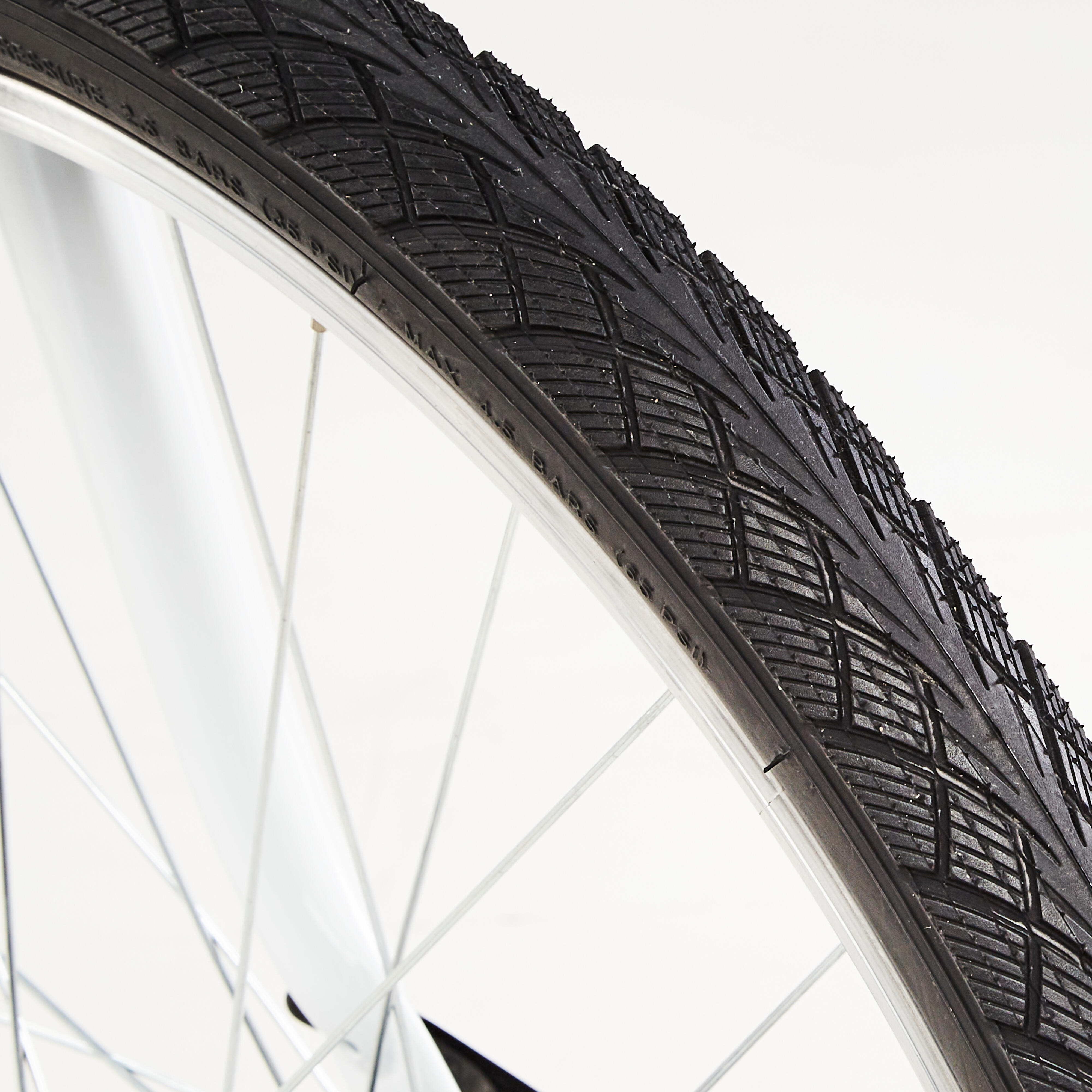
Changing the handlebar grips on your child's bike.Learn how by following this tutorial by one of our bike experts, Yacine.
If you suffer a puncture, stop immediately in a safe place to prevent the rim from being damaged.
Turn the bike upside down and set it down on the ground on the saddle and handlebars.
Release the brakes to allow the wheel to come out. Squeeze the V-brake callipers together and release the noodle.
For the front wheel, remove the wheel from the fork and replace the inner tube (see explanatory video).
For the rear wheel, position the derailleur on the smallest cog. Loosen the wheel and then change the inner tube (see explanatory video).
As a last resort, you can always use puncture repair spray, with which you can repair an inner tube without tools, though this won't work if the inner tube is torn.
Changing an inner tube on a child's mountain bike.
Need to adjust the derailleur on your child's bike so you can enjoy a ride together without hindrances? Simply follow Yacine, who will be your guide today on how to adjust your bike correctly. Following these tips may spare you from having to do roadside repairs not to mention getting your hands all dirty from the grease on your chain. For proper adjustments you will need a 9 mm wrench and a 4 mm Allen key.
0:53 Replace the chain and remove the chain guard
1:16 Disconnect the derailleur cable
1:37 Loosen the cable tension
1:58 Adjust the stop screws for the large and small cogs
2:40 Adjust the stopper on the small cog
3:14 Use the shifter to move the derailleur and adjust the stop on the largest cogs.
3:48 Adjust the cable tension so you can shift properly
4:15 If the chain rubs against the derailleur, tighten the cable.

Please contact one of our technicians who will be happy to help
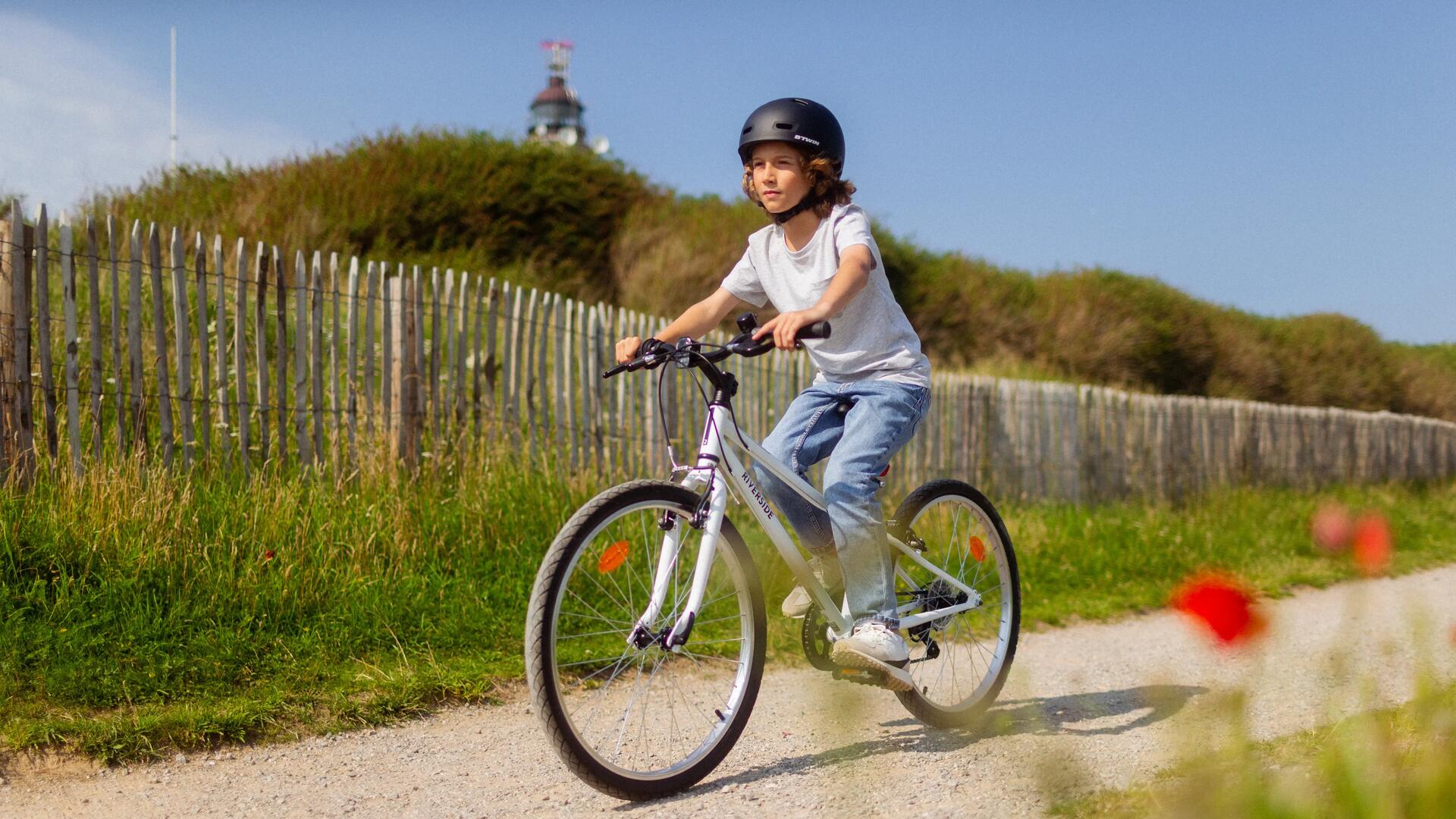
BTWIN provides a lifetime warranty on the frame, handlebar and stem of this bike (under normal conditions of use).
All other parts have a two-year warranty.
When you start riding your bike, some components will move slightly. It's for that reason that we offer a free check of your hybrid bike six months after purchase.